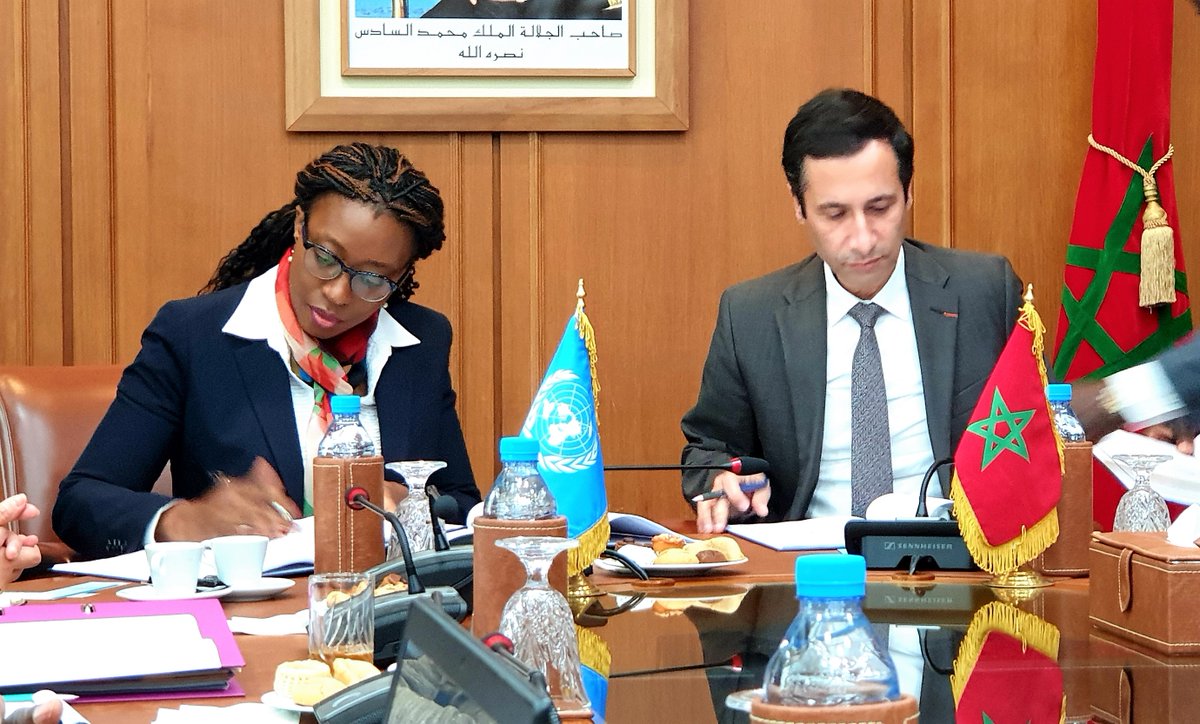A panel of discussants, under the auspices of the UN Economic Commission for Africa, says African continent may have to average, at least 10 per cent growth rate, to meet the Sustainable Development Goals (SDGs).
The speakers made the assertion on Tuesday in Marrakech, Morocco, at a press briefing on the 52nd Session of the Conference of African Ministers of Finance, Planning and Economic Development (COM2019).
They said there was need for African countries to expand resource-base to finance developmental goals.
The News Agency of Nigeria (NAN) reports that the ministerial conference runs from March 20 to March 26 in Marrakech.
Its theme is: “Fiscal Policy, Trade and Private Sector in the Digital Era: A Strategy for Africa.”
The discussants included Lilia Hachem Naas, Director of ECA sub-Regional Office for North Africa; Adam B. Elhiraika, Director, Macroeconomic Policy Division of ECA; Giovanie Biha, Deputy Executive Secretary of ECA; and Mercy Wambui, Chief of Communication, ECA.
In his presentations, Elhiraika said the 2018 average 3.2 per cent growth was inadequate to drive the continent’s sustainable economic growth.
“We advise that countries must mobilise resources, manage natural resources more effectively, stimulate local productions, expand tax base and fight corruption.
“In tandem with the theme of the 52nd Session, some countries on the continent have increased their tax revenue significantly through digitalisation of tax collection and management.
“Through digitilisation, these countries have been able to significantly reduce cases of corruption and waste, while ensuring that almost what is due as tax to the government gets to it.
“Digitalisation also provides more opportunities for the private sector to grow as well as invest in other sectors, which consequently increase tax base, create more jobs and impact positively on infrastructure development,” Elhiraika said.
He added that Africa has to stop importing manufactured goods.
According to him, one of the best ways to overcome dependent on imported goods is as envisaged under the African Continent Free Trade Area (AfCTA) Agreement.
“The Agreement is an opportunity to transform our society. However, a lot depends on financial resources available,” he said.
Biha, in the same vain, said that the development of Africa was all about sufficient revenue to finance the SDGs and other developmental needs.
“Eleven years is just around the corner, but we are not going to achieve the desired goals with the current growth rate,” she said.
Biha said African market was huge, while the opportunities were almost limitless.
She, however, called for greater attention to be paid to tax issues and other sources of revenue mobilisation, saying that tax policies determine level of development.
“There is no way out. You just have to pay your tax.
“Reports already indicate that most firms are either not taxed at all or not adequately taxed,” Biha said.
The speakers, however, agreed that there was need to encourage more intra-African trade, while every country on the continent must adopt the policy of “Africa First” in their engagement with extra-African interests.
(NAN)




 Premier League
Premier League